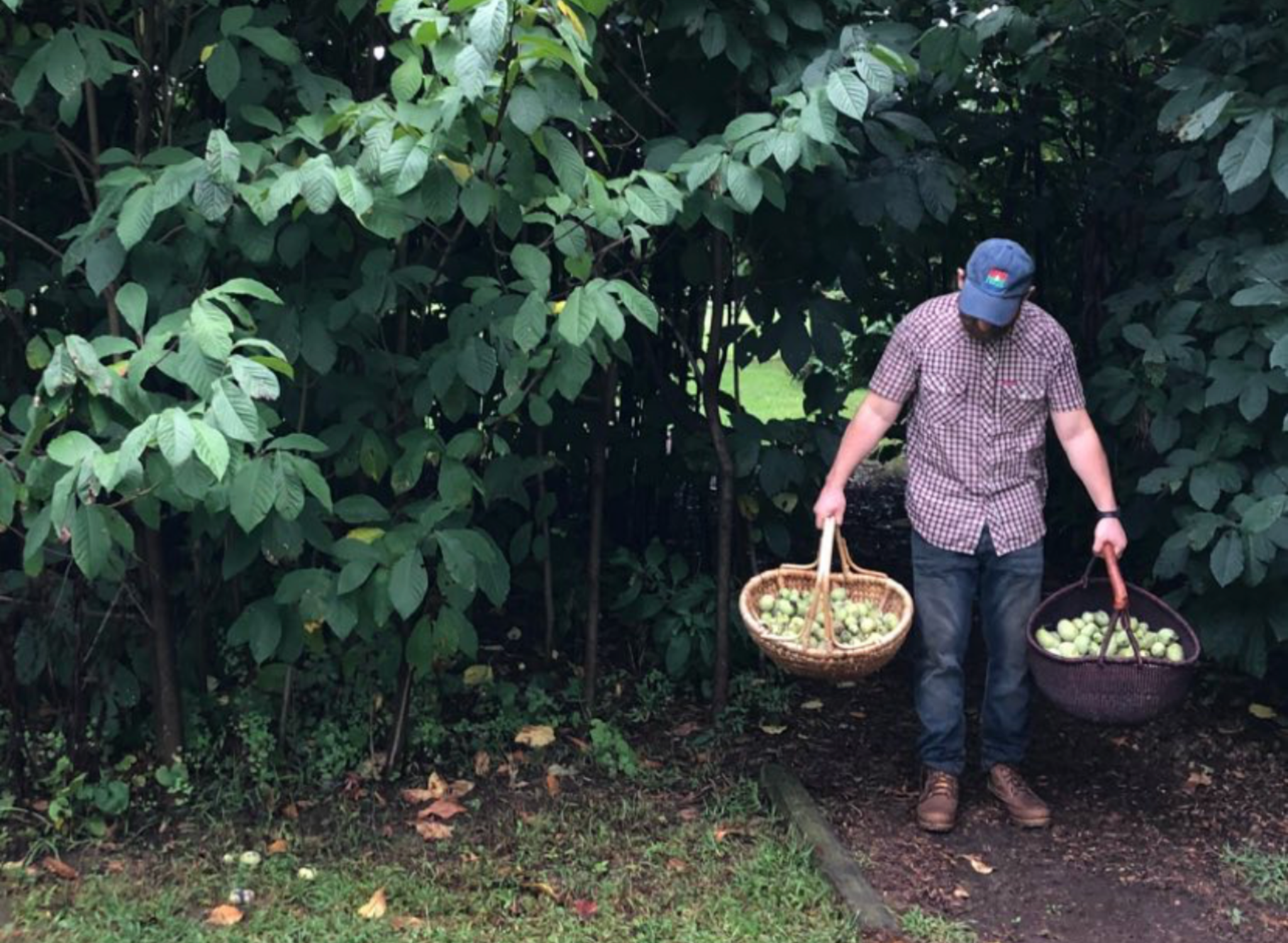Foraging for the Future

1) Oftentimes overpopulation is blamed for climate change but this theory could be disproved by the fact that Indigenous people make up less than 5% of the world's population, yet defend 80% of global biodiversity. What did you learn from this community while living with them that you feel the rest of us can apply in our everyday lives to better conserve and protect our planet?
During my time living with indigenous populations in South America, I was astounded at their respect for, and knowledge of, each of their environments and the flora and fauna that inhabit them. In their traditional animistic worldviews, plants and animals have spirits that are equally as important as human spirits, and are regarded as essential components in the delicate balance of nature and life. In the Western worldview, nature is far too often regarded as a force to be dominated and subdued, rather than harmoniously co-inhabited with.
I think that we can begin to change this paradigm by familiarizing ourselves with what grows and lives around us, whether that’s in the forest, our backyards, or along roads, and highways. It will automatically instill a sense of respect and amazement at the diversity of life. The sooner we begin to look at things less as weeds, pests, and nuisances, the more we will begin to value the biodiversity that surrounds us.

2) In the USA, it is estimated that food travels 1,500 miles from farm to plate which can generate a lot of greenhouse gas emissions. What steps can people take to better support a local food system and reduce dependency on large-scale food transportation?
There are various ways to do this, but some of the easiest steps would be food shopping at your local farmers market, starting a garden, and foraging for food that grows around you. Also, if going out to a restaurant, try and choose one that you know supports local growers and purveyors. Another important piece of this puzzle is to learn how to preserve food through traditional techniques like pickling, fermenting, canning, etc. These will allow you to use up a surplus of ingredients when they’re in season and save them for later in the year.
The unsung benefit of making these choices is that in addition to bettering the planet, your food will inherently taste better and be more nutritious, as locally sourced ingredients are grown and harvested to be consumed at peak ripeness, rather than to be shipped halfway across the world.

3) The article about you in The Philadelphia Inquirer suggests that your grandfather and uncle played a role in your interest in foraging from a young age. As a father now, what tips do you have for raising a child who is curious and connected to the environment around them?
Start them young! From the moment our first son, Leo, was old enough, we would have him in the carrier while we were out foraging or harvesting from the garden. Now that he can walk, he is out there right next to us harvesting ingredients and tasting everything as he does. Obviously, this requires constant attention to make sure they're not eating something they shouldn’t be, but building that familiarity and nurturing his curiosity from such a young age is absolutely indispensable in creating a deep connection to food and the environment.
Sonny, our second child, was born just three weeks ago, and he has already had his first foraging journey to pick apples and chestnuts! Though he’ll never remember, we most certainly will.

4) I understand that reducing waste is important to you, your family, and even your place of work. What are some tips you have for others just beginning their journey to zero waste?
So much that could be covered here, but these are some of my golden rules:
- Reduce, reuse, and recycle (in that order!)
- Preserve food before it goes to waste and compost food scraps
- Empty your fridge before refilling it
- Use less water
- Purchase less plastic and individually-wrapped, single-serving items
- Stop using paper towels and napkins. Use rags instead
- Use metal straws
- Buy in bulk and use your own containers & reusable bags
- Ride your bike

5) As the pandemic persists, mental health issues continue to rise. As someone who spends a lot of time with nature, can you speak to some of the healing properties that nature has offered to you that might be able to help others through this challenging time?
My family, like many others, has had a difficult nineteen months since the onset of the COVID-19 pandemic. We’ve lost our jobs, been isolated from people we loved, and struggled with the loss of “normalcy” from our lives, all while navigating the birth of our first two children into a totally different world than we once knew. If it weren’t for our garden, trips to the woods, days at the beach, and nights sharing a drink on our back deck to recharge our batteries, I don’t know how we would have coped with a lot of the curve balls that have been thrown our way.
There is something so restorative and meditative about getting away from the screens, noises, notifications, and constant sensory inputs that bombard us every moment of the day. Getting your hands dirty, breathing fresh air, and experiencing the sights, sounds, smells, and tastes of nature have been like mental health medicine that have helped us immeasurably through this challenging time.


